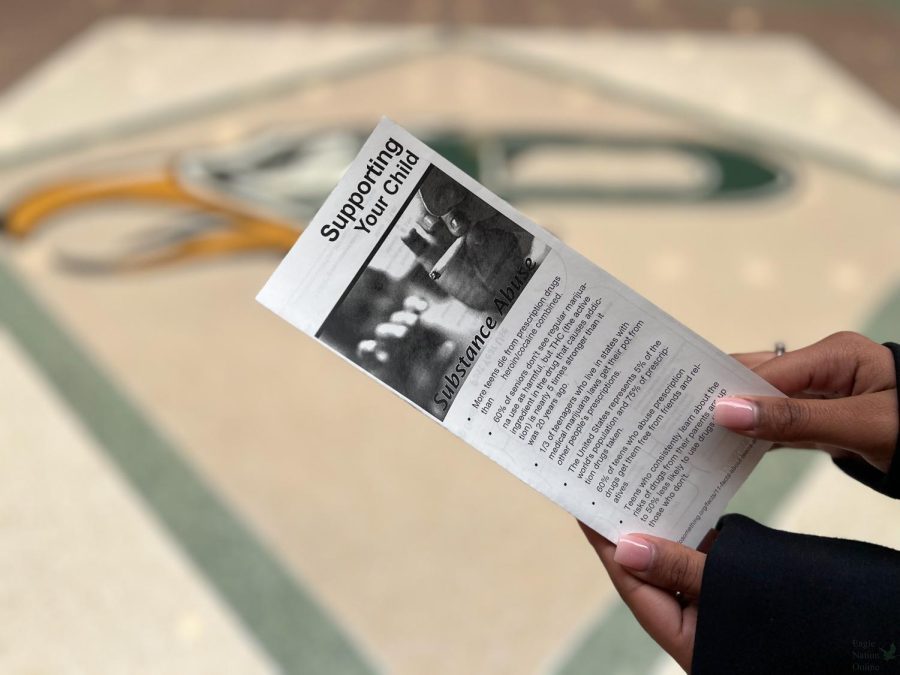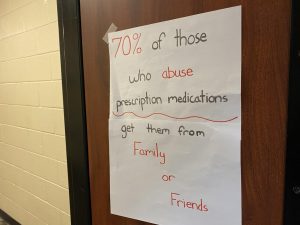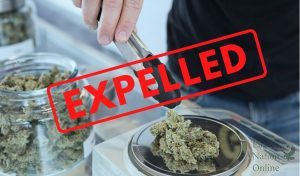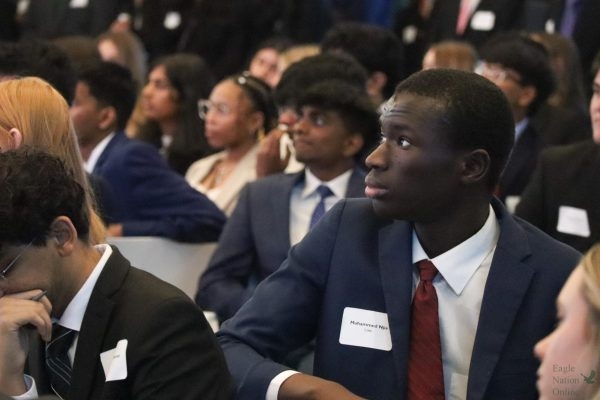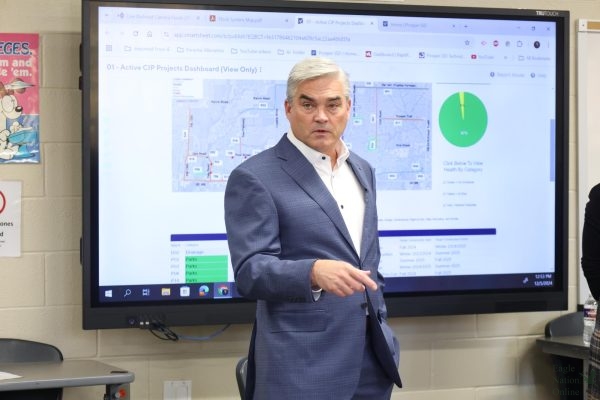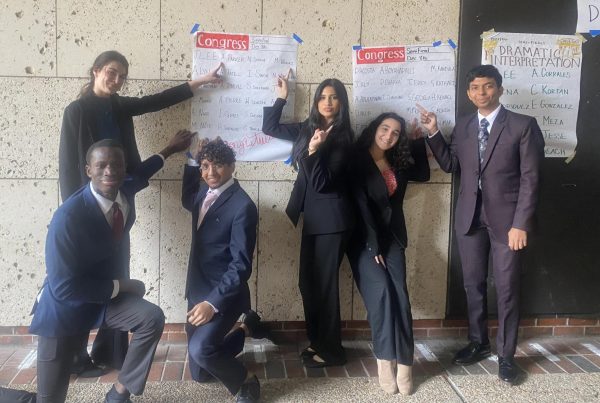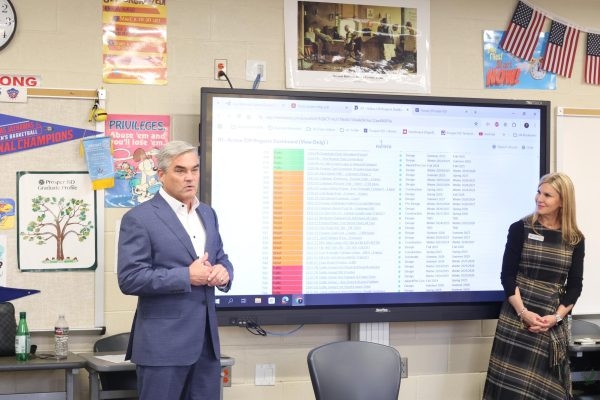School police officers, staff work to prevent use of illegal drugs – including fetanyl
Substance abuse can lead to array of negative consequences for students
Counselors and administrators offer resource pamphlets dealing with substance abuse and other issues for students and parents who need them. The pamphlets can be found in the upper and lower house offices. “There’s proactiveness from student groups with suicide awareness,” officer White said. “We want the halls littered with topics about vaping. It won’t stop them, but it’ll be fresh in their minds.”
With a surge of laced-substance reports, Prosper ISD police officers have taken action to prevent drug use and student overdoses. Drugs, such as fentanyl, can be laced into food, medicine and other items, which can lead to overdoses.
“Percocet is the most counterfeited pill at the moment,” Sgt. Christopher Reeves said. “It’s coming over in raw chemicals and large packages that they’re being used to lace everyday items like candy.”
According to Reeves, drug users don’t anticipate overdoses. Deliberate users assume they are simply taking a pill that will give them a short period of satisfaction.
“They carry on thinking they’re just going to take a prescription pill – or Percocet,” Reeves said. “Those drugs are the most counterfeited.”
Continuing the safety of students, Prosper ISD police officers train and equip themselves for emergency cases.
“We all carry Narcan now,” officer George White said. “If a student overdoses, we administer that Narcan, and in a matter of minutes, it reverses those effects.”
White and Reeves explained the process for the victim after the overdose, as the overdosed student is still held accountable.
“Recovery is ultimately what will happen during the hospital visit,” White said. “However, they will be charged.”
In addition, more programs are being planned to educate students and adults about the ‘trending’ tobacco product at the moment — vapes.
“There’s proactiveness from student groups with suicide awareness,” White said. “We want the halls littered with topics about vaping. It won’t stop them, but it’ll be fresh in their minds.”
The officers pointed out scaring high schoolers does not have the same effect as doing so with middle schoolers. Students are less likely to approach officers if they fear them. Legal actions such as going to court are involved once caught.
“We’ll be in contact (with parents) and (the) child will have to be brought to the judge,” White said. “The judge will write a citation, and the student will proceed with probation on top of tobacco awareness.”
While school officials said they want to help prevent substance problems, homes are also a place of responsibility. Parents play a factor in protecting their children and their involvement in certain activities.
“The kid will start getting the message, and the parents want them home right away,” White said. “Once they’re home, backpacks will be checked and become a routine — that’s how it starts getting better.”
Student-led “Hope Squad” program provides further resources
Hope Squad is a student-led group that supports and teaches their environment how to help their fellow peers. Hope Squad adviser and wrestling coach Tony Cooper provides resources that PISD and outside programs give.
“It’s about relationship building and connections,” Cooper said. “We’re trying to be proactive and find people to give help that they may need.”
Cooper said there is a positive difference between the school administration and the program. Hope Squad prioritizes personal connections with peers that administration and faculty may not be able to have with students.
“We have policies set in place – like drug screenings and tests — which is supposed to be proactive,” Cooper said. “We (Hope Squad) try to make friends with people in all areas and guide them away from those problems.”
Cooper said the Hope Squad curriculum explains why people may take drugs and what help can carry on after — rather than punishment.
“Those drugs are masking other problems,” Cooper said. “It’s an idea of self-care, and it’s not a healthy way to do it.”
Cooper said students need to understand the consequences of illegal substance use.
“I think the use of drugs is a bad choice, and I want to educate people on why,” Cooper said. “It not only harms your judgment, but can affect future relationships and job opportunities.”
Community offers area resources
Here’s a list of resources that Eagle Nation Online obtained through various sources of help within the area. The editorial board does not endorse any specific resource on this list but it encourages individuals and families to do their own research on what works best for them. A list of all U.S. treatment Centers can be found on SAMHSA’s website: https://findtreatment.samhsa.gov/ or by calling 1-800-662-HELP.
Your donation will support the student journalists of Prosper High School. Your contribution will allow us to purchase equipment and cover our annual website hosting costs.

Honors and Rewards:
2 Best of SNO's, 2023



